Secrets that aren't secret
Pssssssst! Do you want to know a secret? One of the world's biggest secrets is this: many so-called secrets aren't secret at all. In this issue we'll be looking at some of the best-known secrets in and around Reiki.
The Reiki symbols, for example. Reiki students in the lineage of Hawayo Takata (the Japanese-American who brought Reiki to the world outside Japan) have traditionally been taught that the symbols are secret and must remain that way. That practice continues to this day, 12 years after self-attuned Reiki Master Diane Stein published versions of them in her still-controversial 1995 book Essential Reiki. Today the Reiki symbols can easily be found on the Internet, in some cases available for sale as jewelry and other products.
In Japan, or China for that matter, two of the four symbols are simply part of the language -- they are kanji, traditional Chinese characters also used in Japanese. To say that those symbols are secret would be like saying that certain letters of the English alphabet were secret. And the two symbols that aren't kanji can also be found all over Japan, so they aren't secret, either, except in Western Reiki lineages.
Last week's edition of The Reiki Digest included a typical example of non-secret Reiki symbols in this photo from the Brooklyn Botanic Garden:

But a symbol by itself, secret or not, is not necessarily the equivalent of what it represents. For example, if I include a dollar sign ($) in this article, that doesn't mean I'm giving you money. If I use the dollar sign in certain ways, combined with letters, numbers, and other symbols, the software I'm using to publish this might become confused and change the formatting accordingly.
Then there are the other symbols that have been added to some non-Japanese Reiki lineages -- some borrowed from other cultures, some created (or channeled) by teachers in those lineages. People who use those symbols along with the four traditional Reiki symbols generally tend to keep them secret as well -- or as secret as anything is these days. And they sometimes object when those additional symbols don't get the same respect from practitioners who use only the four symbols taught by Reiki founder Mikao Usui.
I am not in Japan, and I've never been there, but the other day I decided to take a look around and see how many supposedly secret Reiki symbols I could find in the world around me. Right here in my own home I found some of the kanji on a Chinese newspaper wrapped around a ceramic item we bought to send as a gift to a family member. I found them on the packaging of some of the food in our kitchen. I found them in some of the spam in my e-mail inbox. I turned on the television and happened to find a movie set in Japan -- Lost in Translation, starring Bill Murray -- and I saw the kanji that make up some of the Reiki symbols in glowing lights on Tokyo buildings and on animated highway signs. I changed the channel and there they were again in Memoirs of a Geisha. I met a friend for lunch at a sushi restaurant and saw parts of Reiki symbols everywhere. I bought a bottle of jasmine tea with kanji, including some used in the Reiki symbols, right on the label. Secret? Hardly.
The very word "secret" these days has even become a brand name, that is if you put a "the" in front of it. "The Secret" -- a 2006 movie and subsequent book -- has been a phenomenal success for Australian producer and author Rhonda Byrne, who claims to have found "The Secret" in a 100-year-old book. But she doesn't say what that book is -- she keeps that secret to herself. (If it was published in a book, whether 100 years ago or last week, then it isn't exactly a secret, is it?) I started hearing about "The Secret" last summer from friends who had seen or heard about the movie and felt it was life-changing. Some of them even held "Secret" parties, inviting guests to watch the DVD with them. A few months ago, Oprah herself recommended it, and predictably sales went through the roof. It was even advertised on The Reiki Digest web site for awhile, complete with a free video preview.
I finally got around to watching "The Secret" on DVD and reading the book a few weeks ago, and I have to admit I was disappointed. Maybe I'm just not one of those people who needs to hear a "whoooosssh" from the sound effects department every time someone says something profound. Maybe I was a bit too distracted at hearing the words of Martin Luther King whispered in an Australian accent (followed by yet another "whoooosssh"). But mostly, I didn't find much new in either the DVD or the book. Perhaps that's because I'd already read that "100-year-old book." Or maybe it was because I was already familiar with the work of Esther and Jerry Hicks on the Law of Attraction.
But those, too, seemed familiar to me, because I learned about the non-secret phenomenon in "The Secret" not from metaphysics but from quantum physics, in the Heisenberg Uncertainty Principle, which tells us that the observer affects what is being observed. Werner Heisenberg won the Nobel Prize in 1932 for that discovery, so it's not exactly breaking news, either. Maybe if I add a "whoooosssh," it might seem more like a 21st-Century discovery....
Let's move on to this week's Reiki Roundup.
First stop: Jamaica, where the subject is something most travelers go to Jamaica to avoid: stress. In the Jamaica Gleaner, Dr. Tony Vendryes writes that stress is the most debilitating condition in the United States (not exactly a secret, either), and tells us that Reiki is one of the "highly recommended" ways of dealing with it.
On to Chicago, where the Daily Herald addresses the use of Reiki and other palliative modalities for the pain and stress of dying.
Next stop: Jerusalem, where a Reiki teacher is interviewed for an article about the 40th anniversary of the Six-Day War.
In India, the Mangalorean calls Reiki a "famous clinical method of traditional India."
And in London, we find this week's Celeb-Reiki, Agyness Deyn, whom The Daily Mail calls "Britain's brightest fashion hope." Deyn's mother, Lorraine, is a Reiki Master who chose both the model's original name (Laura Hollins) as well as her new professional name.
In other news, this week's podcast of The Reiki Show from the International House of Reiki focuses on Reiki for families dealing with cancer.
Speaking of the International House of Reiki, The Reiki Digest is once again sponsoring a three-day Shinpiden (Master/Teacher level) class with Frans Stiene in New York in October.
If you're interested in studying with the International House of Reiki but not quite ready to commit to a Shinpiden course, you might consider their new online courses, the 21-Day Program and The Remembering.
Finally, we're proud to announce that The Reiki Digest has hit the big 5-0 -- we now have readers in 50 of the world's 193 countries. (Thanks, Latvia, for putting us over that milestone!)











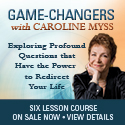
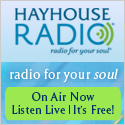





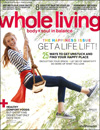

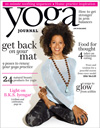
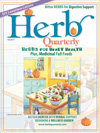
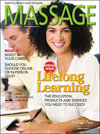

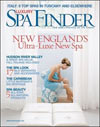
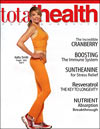






0 Comments:
Post a Comment
<< Home